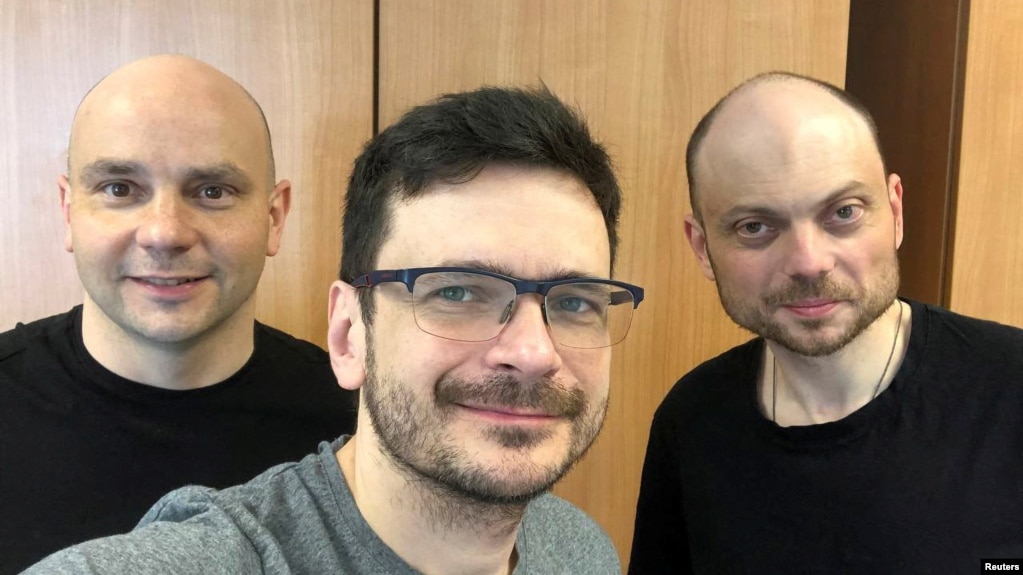While high profile prisoners of conscience go free, many others are forgotten
The prisoner swap brought back memory of Navalny’s fate, sparking outrage at the parallel drawn between the innocent versus the guilty, the spies and the murderers. Pavel Kushnir recently died in prison of the consequences of hunger strike. Last week’s exchange was different from those of the 1970s. Critics label Russia a "rogue state". Kara-Murza pledges to return.
Moscow (AsiaNews) – The prisoner exchange between Russia, the United States, and Germany has caused great emotion since the release of the better known dissidents is tinged with sadness since the late Alexei Navalny was not among them.
At the same time, it has provoked considerable outrage for putting on the same level the innocent and the guilty, political prisoners and spies and assassins, such as Vladimir Putin's great friend, the FSB hitman Vadim Krasikov.
What is more, while the heroes of Russia’s political opposition to Putin’s dictatorship landed in Ankara, Turkey, before travelling to their final destination, another Russian anti-war activist, 38-year-old pianist Pavel Kushnir, died in prison from the consequences of hunger strike.
Olga Romanova, founder of the Russia behind bars NGO, gave the news, noting that more than 800 political prisoners are still languishing in Russian detention centres.
While their names are not as famous as those of the freed dissidents, they certainly cannot be forgotten. And although hailed as a great diplomatic success, given who was involved, the swap gives no reason to rejoice.
In the 1970s, dissidents were exchanged for revolutionaries, political activists for political operatives, not martyrs for criminals.
As several commentators pointed out, including political scientist Marina Litvinovich, with this operation, Russia has "definitively established itself as a rogue state, unashamed to expel great people in exchange for monsters.”
Putin has shown that the basic principle of his politics are rooted in the KGB school, whereby "we do not abandon one of our own.” By embracing Krasikov he hinted at who could lead Russia in his place; no other politician in his circle of power enjoys such affection and closeness.
To free the twice convicted murderer, the Russian president did not even care that the swap legitimises the status of "political prisoners" of those jailed in Russia on “extremism” charges.
This could give more hope to the many who are still behind bars, who do not have to fear of “politicising” their status.
Among observers, opinion is spreading that the president accepted the exchange to show his willingness to negotiate with the West to end the war, or at least to freeze the conflict while maintaining the positions acquired in the occupied territories.
However, once freed, dissidents warn that "this is not the time to wait, but to act", as Andrei Pivovarov said at the press conference in Bonn with Vladimir Kara-Murza, and Ilya Jashin.
Tangible acts are needed to “show the false image of the world dished out at Russian citizens by state propaganda, according to which Russia is a fortress besieged by enemies.”
Opposition heroes urge Western countries to “extend a hand to Russians,” especially young people, inviting them to study in Europe or America, "so that they see how people like them live, not the ogres portrayed on Russian television.”
For Kara-Murza, “many Russians are against Putin, do not believe propaganda, and do not confuse Russia with Putin's regime.”
Each of the 16 prisoners was accompanied to the exchange by their FSB guard, and Kara-Murza’s told him “look at your homeland, because you will never see it again”.
Kara-Murza replied: “I know for sure that we will return to Russia, and the day will come when it will be a European, free and civilised country.” All should “do everything they can so that this day comes as soon as possible.”
More people are waiting to be freed, "not only those who are locked up in prison, and not only Russian citizens", said Ilya Jashin.
15/07/2022 11:40
16/08/2022 10:17
05/11/2022 09:00







.png)










